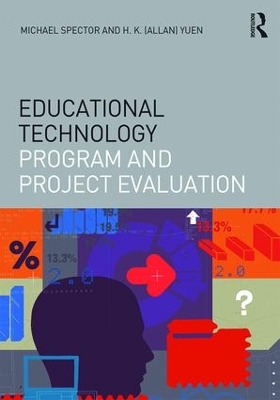Interdisciplinary Approaches to Educational Technology
3 total works
Managing and Supporting Instructional Design and Development
by Milton C. Nielsen and J. Michael Spector
This volume includes a systemic perspective, elaborated examples, meaningful activities, engaging exercises, multiple contexts, and best practices. In addition, each chapter that introduces the students to instructional project management at a particular project or program level has an integrated, scenario based project activity for students and faculty to develop. The book concludes with an examination of challenging instructional project management tasks, situations, and environments. A companion website contains examples, resources, and activities will be maintained to complement the contents and maintain currency with new and relevant technologies.
An ideal textbook for masters, doctoral, or educational specialist certificate programs, Foundations of Educational Technology offers a fresh, project-centered approach to the subject, helping students build an extensive electronic portfolio as they navigate the text. The book addresses fundamental characteristics of educational technology that span various users, contexts and settings; includes a full range of engaging exercises for students that will contribute to their professional growth; and offers the following 4-step pedagogical features inspired by M.D. Merrill's First Principles of Instruction:
TELL: Primary presentations and pointers to major sources of information and resources
ASK: Activities that encourage students to critique applications and share their individual interpretations
SHOW: Activities that demonstrate the application of key concepts and complex skills with appropriate opportunities for learner responses
DO: Activities in which learners apply key concepts and complex skills while working on practice assignments and/or projects to be created for their electronic portfolios
The first textbook to launch Routledge's new Integrative Approaches to Educational Technology series, this indispensable volume covers the core objectives addressed in foundations of educational technology courses.
Educational Technology Program and Project Evaluation
by J. Michael Spector and Allan H. K. Yuen
Educational Technology Program and Project Evaluation is a unique, comprehensive guide to the formative and summative evaluation of programs, projects, products, practices and policies involving educational technology. Written for both beginning and experienced evaluators, the book utilizes an integrative, systems-based approach; its practical emphasis on logic models and theories of change will help readers navigate their own evaluation processes to improve interventions and conduct meaningful educational research. Key features include:
- evidence-based guidelines for constructing and conducting evaluations
- practical exercises to support the development of knowledge, skills, and program evaluation portfolios
- a variety of interdisciplinary case studies
- references and links to pertinent research and resources
Using the TELL, ASK, SHOW, DO model first introduced in this series, Educational Technology Program and Project Evaluation provides comprehensive coverage of the concepts, goals, design, implementation, and critical questions imperative to successful technology-enhanced evaluation.


